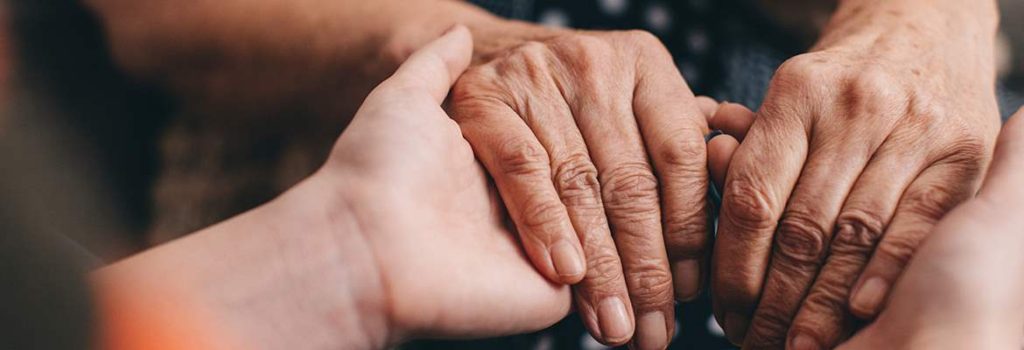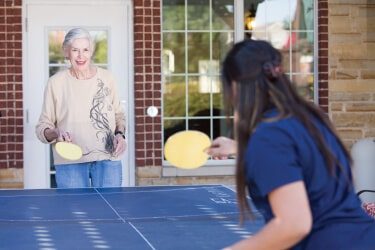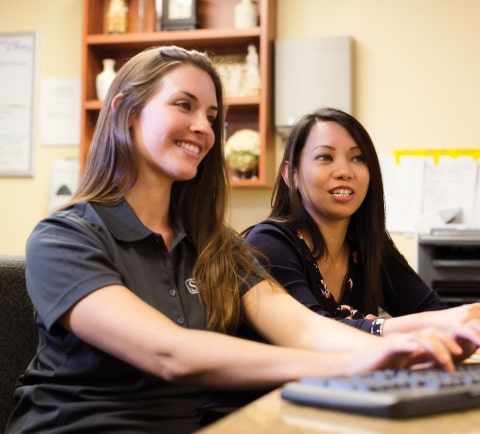Natural Disaster Tips for Caregivers

Serving as a caregiver for a loved one under normal circumstances is enough of a challenge for most, but the complications brought on by a natural disaster can amplify difficulties to a new level. Being prepared for a natural disaster means knowing what to do for yourself and those you care for, so we’re sharing these 12 tips to guide you in what to do should the unexpected happen.
- Be Patient
Try to be as patient and calm as you can. Someone living with a memory impairing disease responds to the non-verbal cues and tone you set. - Be Flexible
Try to be flexible and reduce expectations of your loved one. - Loving Touch
Use touch appropriately. A hug or holding one’s hand goes a long way in providing support to someone who is frightened and having difficulty in understanding what is happening. - Simple Communication
Use simple communication. If there is difficulty in understanding, restate in simpler terms. Do not give complex commands and too many choices. - Redirection
If your loved one is repeatedly asking to go home, acknowledge their feelings and try to redirect their focus to something pleasant. As an example, if they say “I want to go home,” say, “We have to stay here a little longer. In the meanwhile, let’s go for a walk and see if we can get something to eat.” - Reduce Anxiety
Try to limit their exposure to the news. The constantly breaking news updates can increase one’s anxiety even if the news update is not pertinent to their particular situation. - Maintain Routine
Try to maintain daily routines where you can. - Reduce Exposure
Remember that crowds of people, noisy loud conversations, being in strange or different surroundings and any change in the regular routine and sleep patterns of someone living with a dementia can all provoke behaviors, so try to reduce exposure to where you can. - Inform People
If you have had to evacuate to a shelter, inform people as appropriate around you that the person has a memory impairment. - Plan Familiar Activities
To help reduce the anxiety of a new setting, try to build in activities that your loved one may enjoy, such as taking a relaxing walk or listening to calming music. - Smaller Groups are Better
Often a person living with dementia does better with smaller groups of people and can manage things better earlier in the day. - Lookout for Unmet Needs
Remember to pay attention to other potential unmet needs causing behaviors such as hunger, needing to go to the bathroom, thirst and pain.


